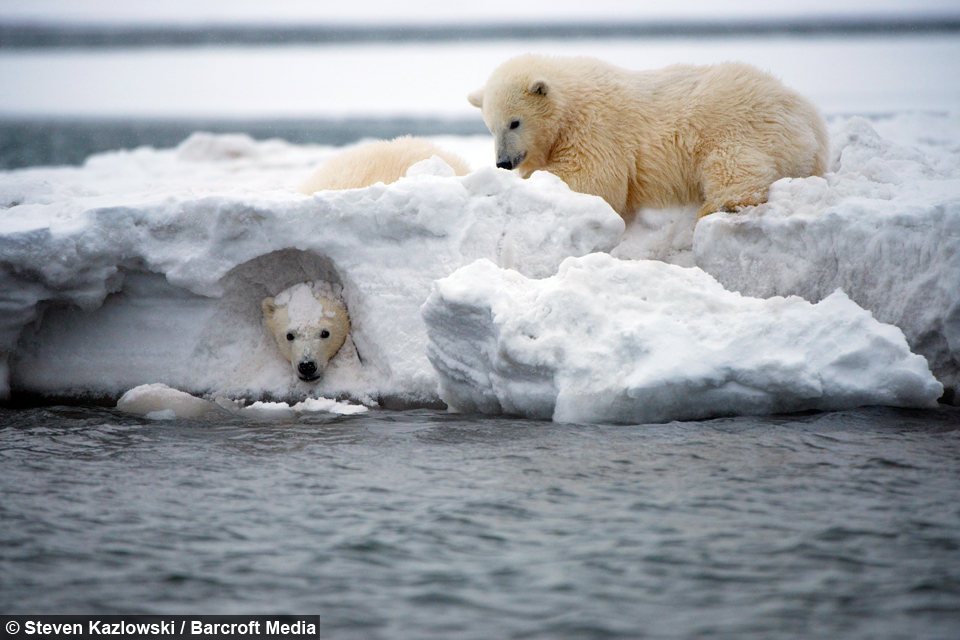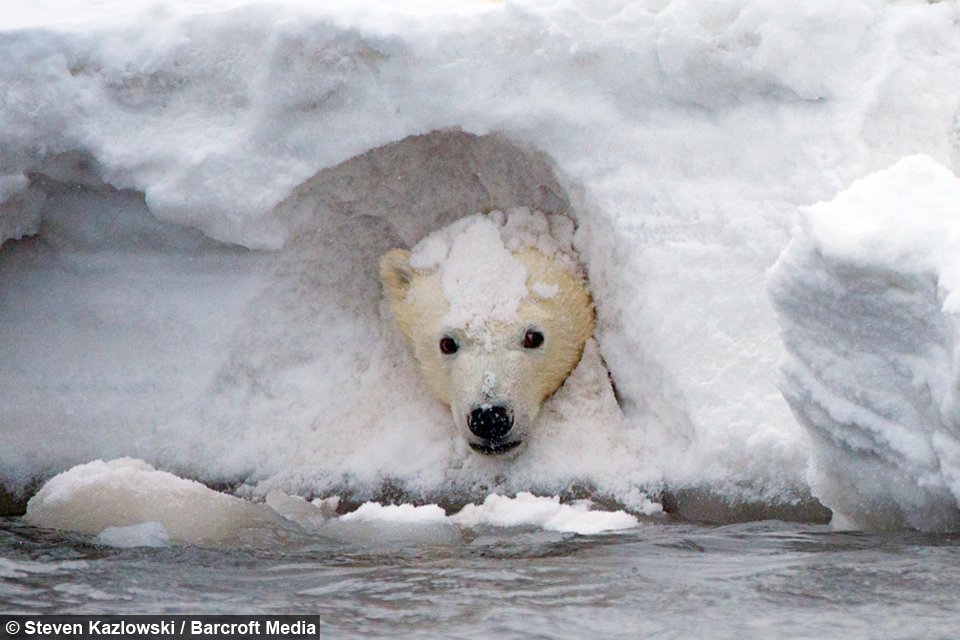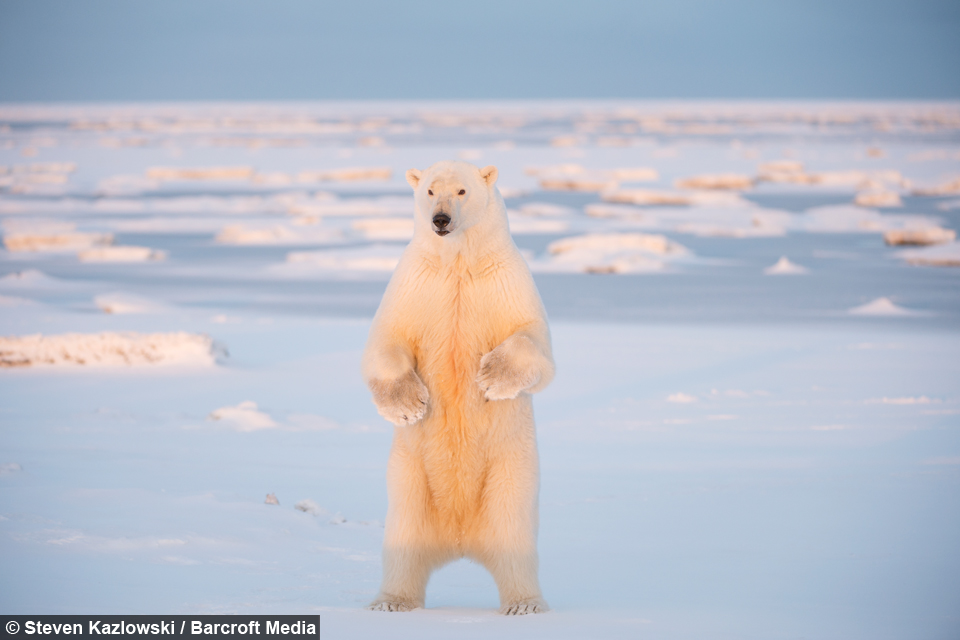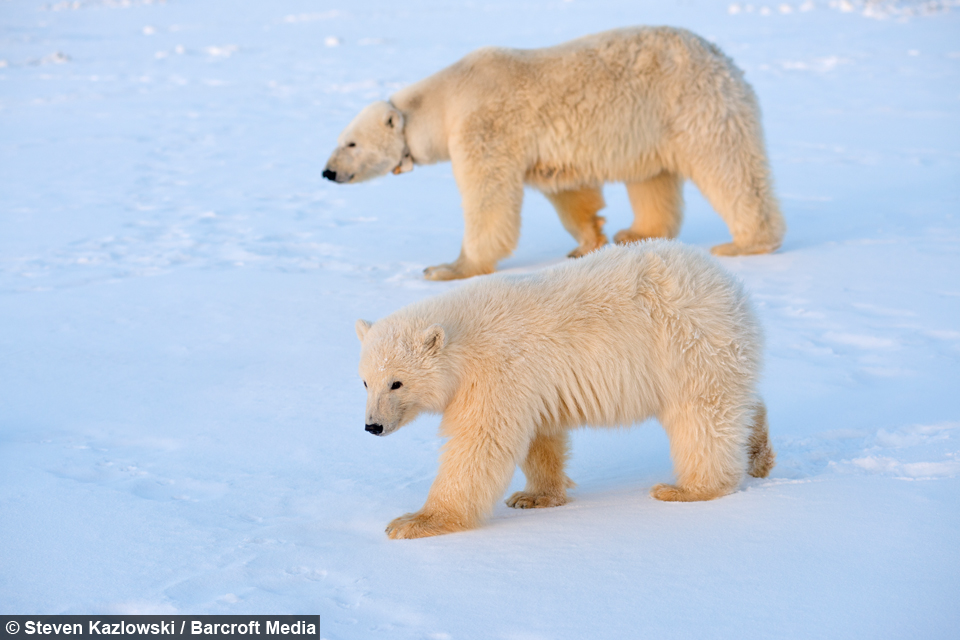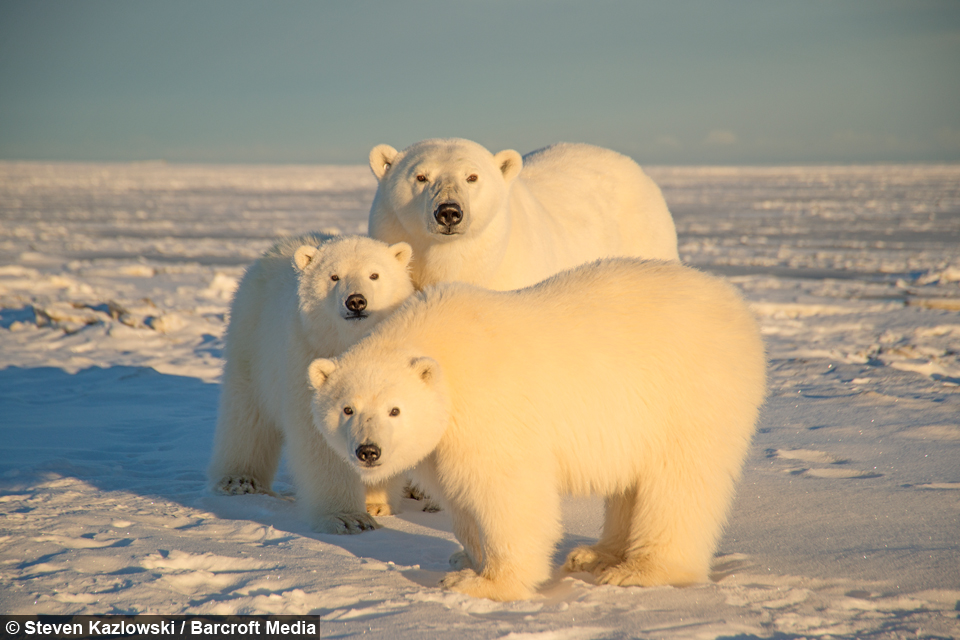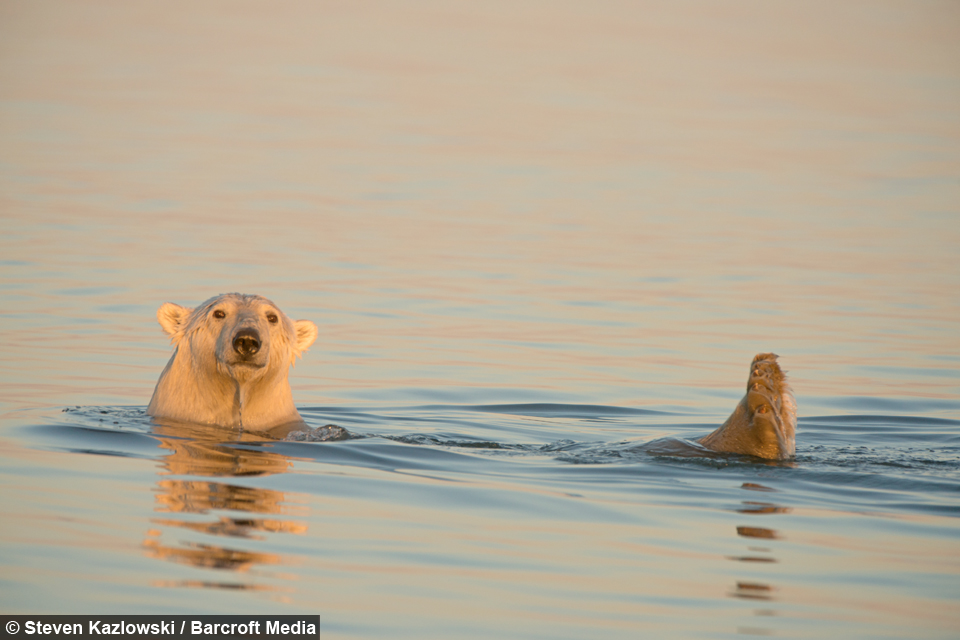Polar Bear Peek-a-boo
By Amanda Stringfellow @Amanda_L_S
Scroll down for the full story
Photographer Steven Kazlowski spends four to six months a year photographing in Alaska, capturing the real life of the region's polar bears.
The cub, born this year, frolicked with another youngster at the edge of a snow bank on Bernard Spit, a barrier island off the northeast coast of Alaska.
The cub, born this year, frolicked with another youngster at the edge of a snow bank on Bernard Spit, a barrier island off the northeast coast of Alaska.
Steven said: “This large bear appears to be what is possibly a hybrid - a grizzly bear polar bear mix.
“There is no DNA proof but it looks very strange, it could be two-thirds polar bear, one-third grizzly.
One of the amazing images shows a young male using its leg as rudder to turn itself in the direction it wants to go.
Another shows what could be a rare hybrid bear, dubbed a 'Grolar Bear' - thought to be a mixture between a polar bear and a grizzly bear.
“It has a short snout and odd face - when compared to other polar bears it leads one to believe it may be a grizzly bear hybrid.”
The 45-year-old from the Pacific Northwest, USA, spends every autumn in the Alaskan Arctic.
Steven, said: “I work with my Inupiaq friend Melvin Jack Kayotuk of Akook Arctic Adventures to photograph and take people out to see and experience polar bears.
“This collection of images was taken along the coast in the eastern Alaskan arctic, from early September through October 2014.
In November 2014, scientists from the U.S. Geological Survey and Environment Canada found a key polar bear population fell by nearly half in the past decade.
Scientists are seeing a dramatic increase in young cubs starving and dying, with researchers blaming shrinking sea ice from global warming for the rise in deaths.
While the bears Steven spotted appeared happy and healthy – this news means up-close polar bear-sighting may become an increasingly rare occurrence.
Some of the images were taken just off the village of Kaktovik, Barter Island, some along Bernard Spit, a barrier island, and some in the Arctic National Wildlife Refuge, Alaska.
“These bears are part of the southern Beaufort Sea population of bears," Steven added.
“In terms of weather conditions, it was windy on and off, and winds could be up to 40-50 mph with temperatures in the low 20Fs.
“Globally it is rare to get images of polar bears but in the area I work in, at a certain time of the year, it is quite common.”
Steve photographed these bears while working with Akookarcticadventures.com

